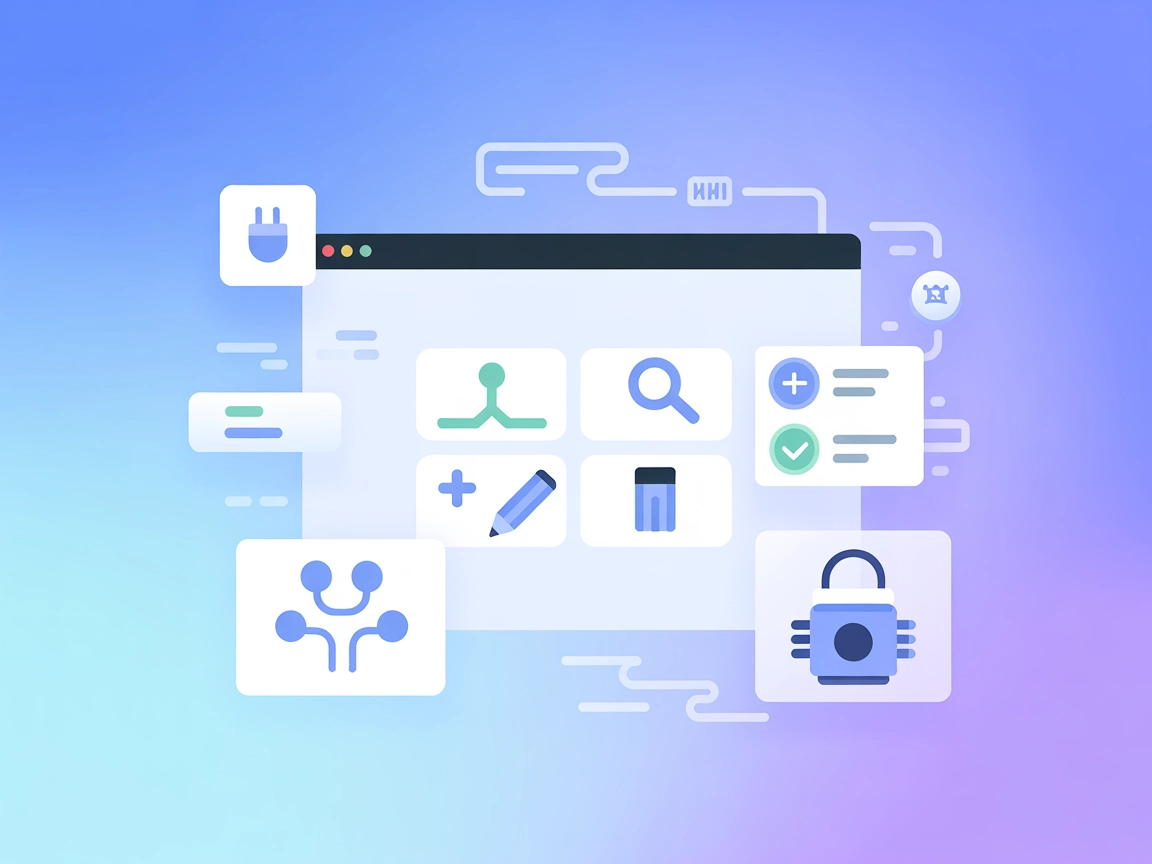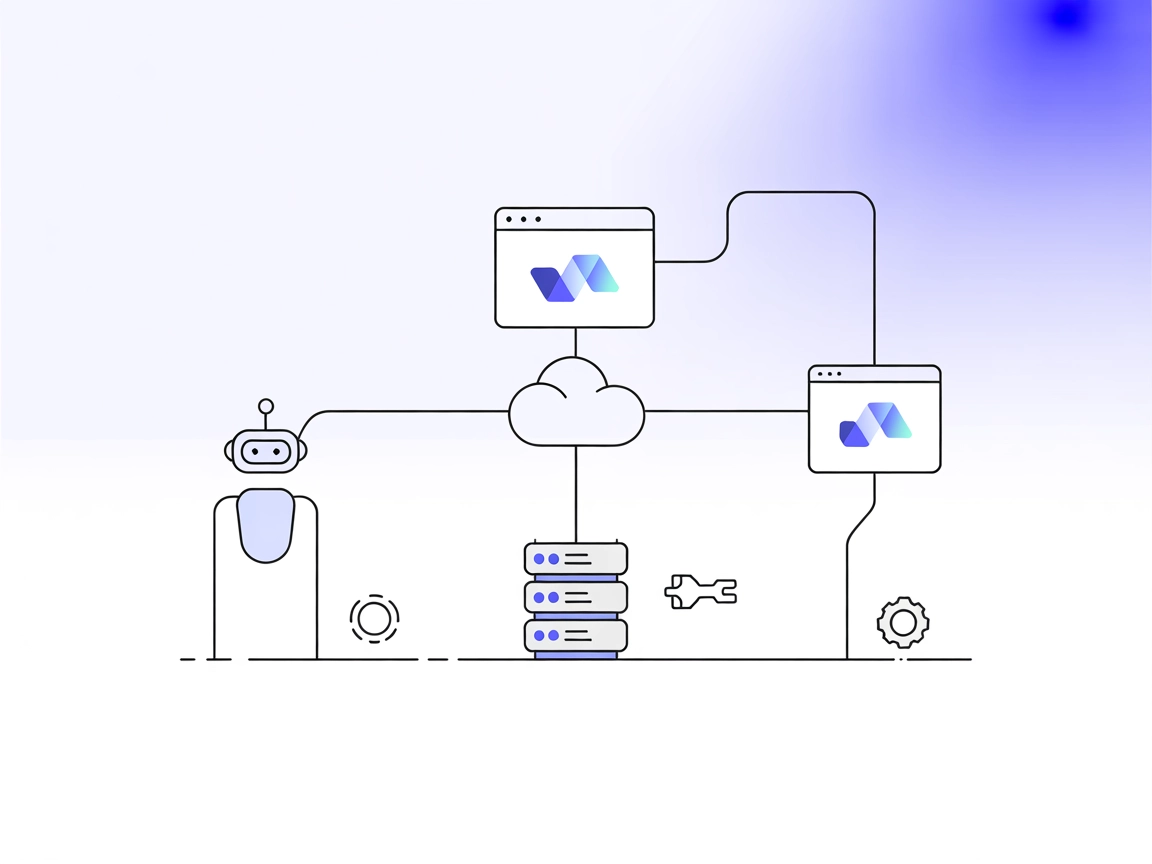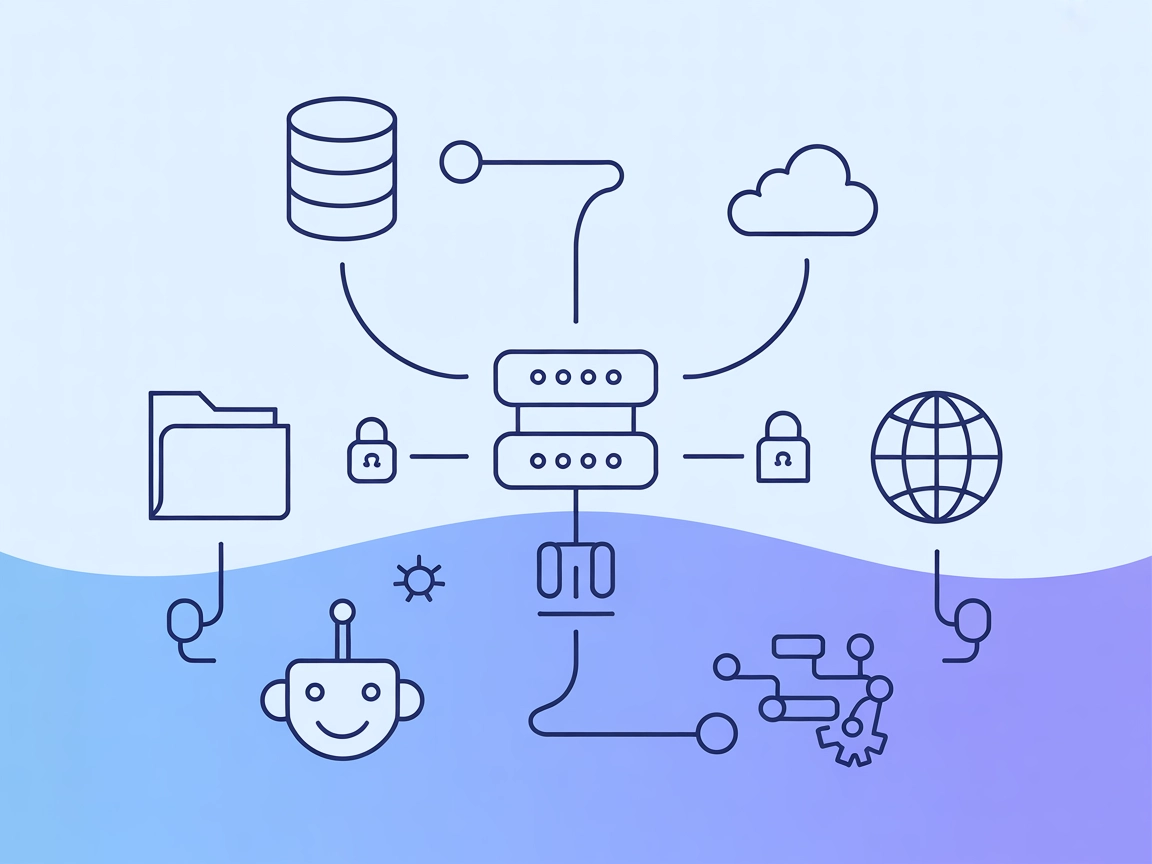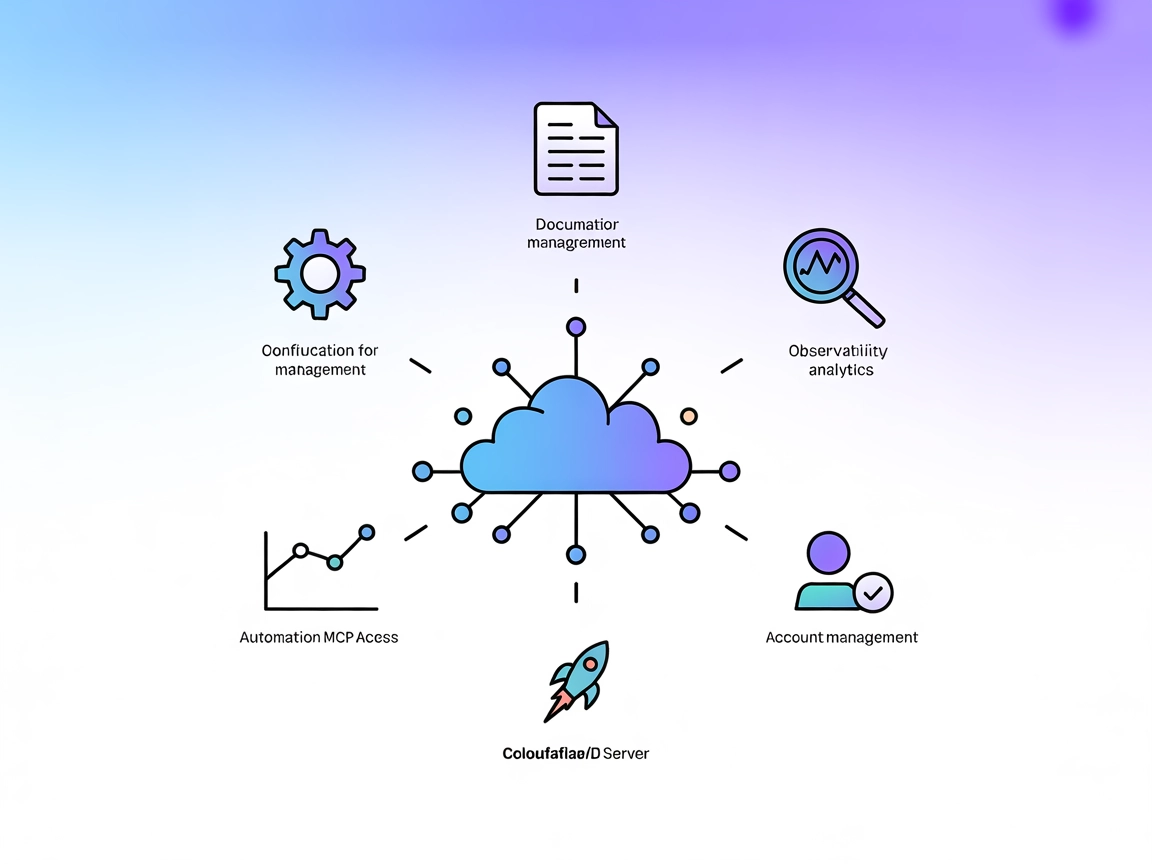
Workflowy MCP Server Integration
The Workflowy MCP Server connects AI assistants with Workflowy, enabling automated note-taking, project management, and productivity workflows directly within F...

Integrate AI with your Webflow sites via FlowHunt’s Webflow MCP Server for automated site discovery, metadata management, and intelligent workflow automation.
FlowHunt provides an additional security layer between your internal systems and AI tools, giving you granular control over which tools are accessible from your MCP servers. MCP servers hosted in our infrastructure can be seamlessly integrated with FlowHunt's chatbot as well as popular AI platforms like ChatGPT, Claude, and various AI editors.
The Webflow MCP Server is an integration layer that enables AI assistants, such as Claude, to interact with Webflow’s APIs. By connecting AI models to Webflow, this server allows developers and AI-powered tools to access, query, and manipulate Webflow site data programmatically. Key features include retrieving detailed information about Webflow sites, such as site names, IDs, domains, localization settings, and more. This enhances development workflows by enabling automated site management, data analysis, and contextual interactions directly from AI platforms, making it easier for teams to integrate Webflow resources into their broader toolchains and automation pipelines.
No prompt templates are mentioned in the repository.
No explicit resources are listed in the available documentation or codebase.
get_sites
get_site
get_sites but for a single site.No Windsurf-specific instructions are provided in the repository.
npm install.env file with the following content:WEBFLOW_API_TOKEN=your-api-token
~/Library/Application Support/Claude/claude_desktop_config.json%AppData%\Claude\claude_desktop_config.json{
"mcpServers": {
"webflow": {
"command": "node",
"args": [
"/ABSOLUTE/PATH/TO/YOUR/build/index.js"
],
"env": {
"WEBFLOW_API_TOKEN": "your-api-token"
}
}
}
}
{
"mcpServers": {
"webflow": {
"command": "node",
"args": [
"/ABSOLUTE/PATH/TO/YOUR/build/index.js"
],
"env": {
"WEBFLOW_API_TOKEN": "your-api-token"
}
}
}
}
No Cursor-specific instructions are provided in the repository.
No Cline-specific instructions are provided in the repository.
npx -y @smithery/cli install @kapilduraphe/webflow-mcp-server --client claude
Using MCP in FlowHunt
To integrate MCP servers into your FlowHunt workflow, start by adding the MCP component to your flow and connecting it to your AI agent:

Click on the MCP component to open the configuration panel. In the system MCP configuration section, insert your MCP server details using this JSON format:
{
"webflow": {
"transport": "streamable_http",
"url": "https://yourmcpserver.example/pathtothemcp/url"
}
}
Once configured, the AI agent is now able to use this MCP as a tool with access to all its functions and capabilities. Remember to change “webflow” to whatever the actual name of your MCP server is and replace the URL with your own MCP server URL.
| Section | Availability | Details/Notes |
|---|---|---|
| Overview | ✅ | |
| List of Prompts | ⛔ | None found |
| List of Resources | ⛔ | None found |
| List of Tools | ✅ | get_sites, get_site |
| Securing API Keys | ✅ | Uses environment variables |
| Sampling Support (less important in evaluation) | ⛔ | Not mentioned |
| Roots Support | Sampling Support |
|---|---|
| ⛔ | ⛔ |
Based on the two tables, the Webflow MCP Server provides clear and useful tooling for Webflow/AI integration, but lacks prompt templates, resource definitions, and explicit support for roots or sampling. The setup and documentation are solid for Claude, but other platforms are not documented.
| Has a LICENSE | ✅ (MIT) |
|---|---|
| Has at least one tool | ✅ |
| Number of Forks | 10 |
| Number of Stars | 16 |
It is an integration layer allowing AI assistants and workflow tools to access and manage Webflow site data programmatically via API, supporting tasks like site discovery, metadata retrieval, and automation.
The server offers 'get_sites' to list all Webflow sites for an account and 'get_site' to retrieve detailed information about a specific site.
Store your API token in environment variables (e.g., in a `.env` file) and ensure your configuration files reference these variables—never commit sensitive keys to your repository.
Official setup documentation is provided for Claude. For other platforms like Windsurf, Cursor, or Cline, follow your platform’s MCP integration process, adapting the configuration as needed.
Automated Webflow site discovery, metadata management, integration with CI/CD pipelines, and enabling contextual AI interactions based on live site configurations.
Unlock automation, detailed site insights, and seamless management for all your Webflow projects through FlowHunt's Webflow MCP Server integration.

The Workflowy MCP Server connects AI assistants with Workflowy, enabling automated note-taking, project management, and productivity workflows directly within F...

The wxflows MCP Server bridges AI assistants with external data sources and APIs, enabling secure, modular, and AI-driven workflow automation in FlowHunt. Easil...

The Cloudflare MCP Server bridges AI assistants and Cloudflare’s cloud services, enabling natural language automation for configurations, logs, builds, and docu...
Cookie Consent
We use cookies to enhance your browsing experience and analyze our traffic. See our privacy policy.